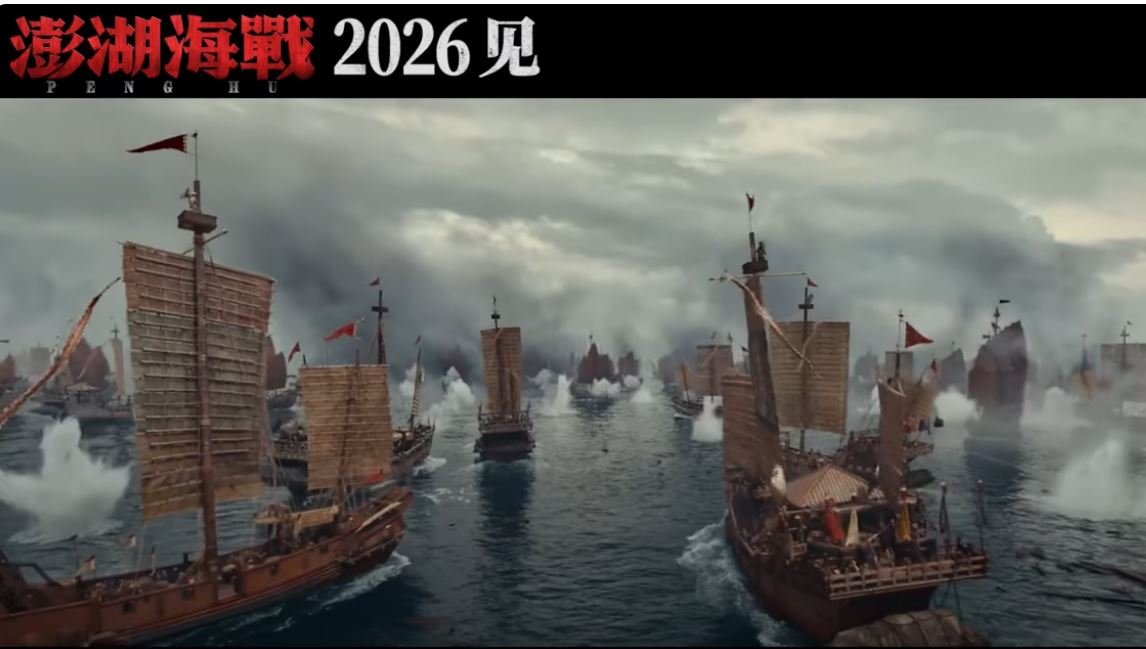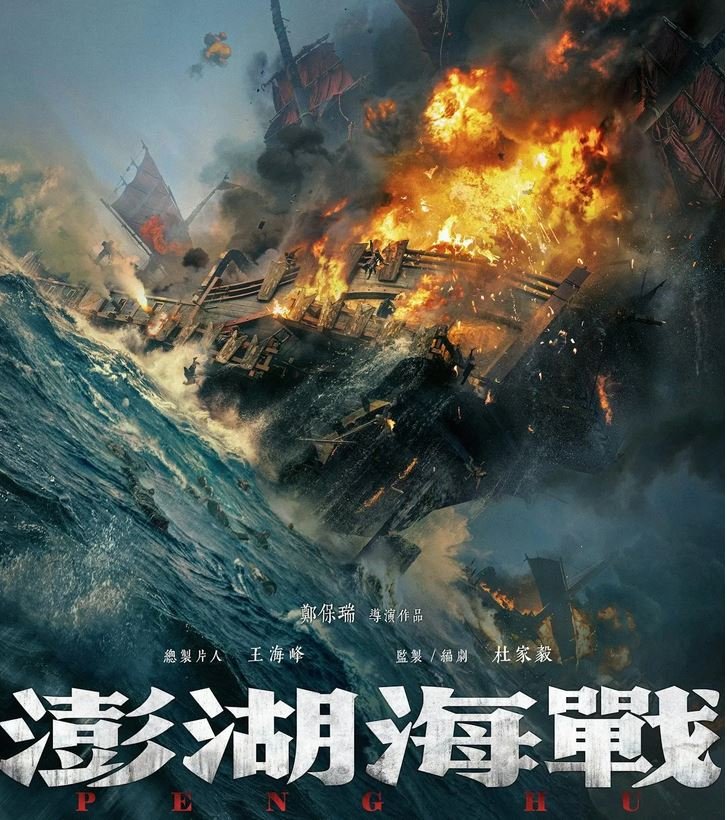China’s use of historical cinema to push reunification narratives is drawing criticism even within its own borders.
by Hu Zimo

In its latest attempt to shape public sentiment on Taiwan, China is turning to the silver screen. “The Battle of Penghu” (澎湖海戰), a state-backed historical epic slated for release in 2026, dramatizes the Qing dynasty’s 1683 defeat of Ming loyalists in Taiwan. The film’s promotional trailer features the slogan “Unifying Taiwan is unstoppable”—a blunt encapsulation of Beijing’s political messaging. However, the backlash that followed suggests that even in tightly controlled media environments, history resists being reduced to propaganda.
The film centers on Shi Lang, a Qing admiral who led the conquest of Taiwan, defeating the forces of Ming loyalist Zheng Keshuang. While the historical event is real, the film’s framing—casting Qing imperial expansion as a righteous act of national unification—has sparked unease among viewers. Critics on Chinese social media questioned why the narrative glorifies the Qing, a foreign dynasty, while vilifying the Ming loyalists, who are often seen as defenders of Han Chinese sovereignty. Some even sarcastically proposed that Beijing’s next cinematic venture might celebrate Wu Sangui, the infamous Ming general who betrayed his dynasty to the Manchus.
This internal dissent is telling. It reveals the contradictions in Beijing’s historical revisionism: in attempting to draw a straight line from Qing conquest to modern-day claims over Taiwan, the state risks alienating those who see the Ming loyalists as patriotic resisters. The backlash was swift—and swiftly censored. Negative comments were scrubbed from Chinese platforms, leaving only official narratives and supportive voices visible.

This is not an isolated case. The Battle of Penghu follows a string of productions aimed at reinforcing the inevitability of “reunification.” Earlier works, such as “Silent Honor,” which dramatized real-life espionage cases involving Taiwan, similarly blurred the line between historical drama and political messaging. These films are instruments of ideological warfare, designed to naturalize the idea that Taiwan has always been—and must always be—a part of China.
However, history is not a monolith, and the past does not speak with a single voice. The Qing conquest of Taiwan was not a peaceful unification but a military campaign against a regime that had resisted foreign domination. To frame it as a precursor to modern reunification is to erase the complexities of colonialism, resistance, and identity that define Taiwan’s historical experience.
By weaponizing history through cinema, Beijing risks undermining its own credibility. When propaganda masquerades as art, and when dissenting interpretations are silenced, the result is not unity but skepticism. As the reaction to “The Battle of Penghu” shows, even carefully curated narratives can unravel when confronted with the messy truths of the past.

Uses a pseudonym for security reasons.



